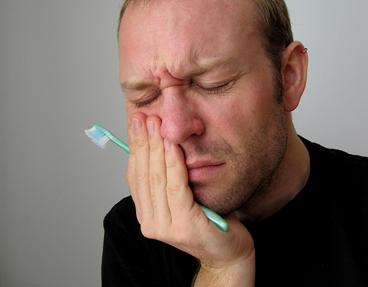Your boss. Your neighbor. That infuriating talk show host. Your teen’s shoddy behavior. Your spouse’s irresponsible drinking habit. The traffic on the way to your office. Your incorrigible in-laws. Your stupid colleague. Your oft-disconnected WiFi network. And above all, the hell a lot of noise your neighbor’s poodle makes at night. Just think. What are the things that drive you up a wall? How many people infuriate you with their behaviors? How aggressive are you when you become angry?
Anger management is not that easy. People who have been there and done it, know. Though research, therapies and medications are there to help with controlling your anger, nothing helps without you taking the first step. Often, this involves being dumb about your anger and loading the hurt inside. This can be more harmful as you can explode at one point if you keep suppressing your fury. It can also affect you physically and psychologically if you are not taking care of yourself. Research has found out that people with high blood pressure saw a jump in their pressure when they were angry. For some, anger can lead to asthma symptoms and angina attacks. In brief, anger can be all-consuming if you are not careful or do not know how to manage it.

Aromatherapy for anger management: Essential oils can do a lot in controlling anger. With their calming and soothing effects, essential oils reduce everyday anger and make you peaceful and at home with yourself. The following aromatherapy blends can help control anger:
1. Rose oil: Rose is a symbol of beauty and love. The very thought of the flower or a whiff of the oil can bring peace in you. You can inhale the oil directly from the bottle or rub it on to your pulse points for better performance. If possible, you can add a few drops on to your handkerchief and use it all through the day. A more economical way of using the oil is to use a candle diffuser. This would be more beneficial as you can share it with everyone at home.
2. Aromatherapy blends: You can use the following blends as diffuser oils, bath oils, massage oils, air fresheners and bath salts. Before we look at the proportions of the blends to be used, let’s get an overview of the blends:
Blend 1: For most calming effects, mix 1 drop of Rose with 3 drops of Orange and 1 drop of Vetiver.
Blend 2: For a pleasant atmosphere, add 3 drops of Bergamot to 1 drop of Ylang Ylang and 1 drop of Jasmine
Blend 3: For a sense of peace and refreshment, add 1 drop of Roman Chamomile to 2 drops of Bergamot and 2 drops of Orange.
Blend 4: For easy everyday use, add 3 drops of Orange oil to 2 drops of Patchouli.
3. How to use aromatherapy blends for anger: Once you have prepared or experimented with your blends, you can use them in the following ways:
Diffuser oils: Add 20 drops of your blend (can be got by multiplying your blend 4 times) to your diffuser following your manufacturer’s instructions.
Bath oils: Bathing is a great way to temper your anger. Multiply your blend by 3 times and add 15 drops of it to your bath oil recipe.
Massage oils: Use 10 drops of your blend, mix it with a good carrier oil and massage your body with it. Massaging can relax your tensed muscles and bring you peace of mind.
Bath salts: Adding anger-controlling oils in your bath salts recipe is a good idea to bring in a sense of peace. Add 5 drops of your chosen blend to your regular bath salt recipe.
Air Fresheners: To make the whole room or living area aromatic and bring in a sense of peaceful atmosphere, add 30 drops of your blend to your air freshener recipe.



 Aromatherapy for bladder infection: There are several essential oils to be used for treatment of bladder infection. Some of them are: Bergamot, Cedarwood, Fir, Frankincense, Juniper Berry, Sandalwood and Tea Tree oil. Other oils that can be used include – Cajeput, Clary Sage, Clove, Cypress, Peppermint, Rosemary etc. Below are some of the ways on how to prevent or cure your bladder infection:
Aromatherapy for bladder infection: There are several essential oils to be used for treatment of bladder infection. Some of them are: Bergamot, Cedarwood, Fir, Frankincense, Juniper Berry, Sandalwood and Tea Tree oil. Other oils that can be used include – Cajeput, Clary Sage, Clove, Cypress, Peppermint, Rosemary etc. Below are some of the ways on how to prevent or cure your bladder infection:



